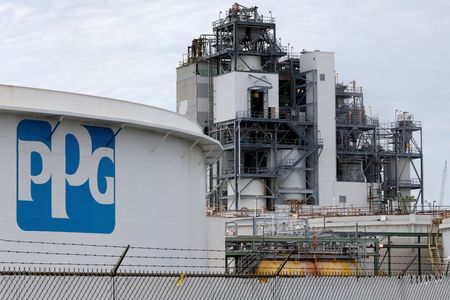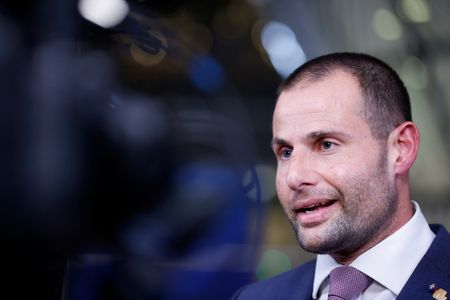By Sam Tobin
LONDON (Reuters) -Billionaire oil tycoon Eugene Shvidler on Tuesday lost his appeal against British sanctions imposed on him over Moscow’s invasion of Ukraine at the UK’s Supreme Court, a ruling lawyers said makes it difficult for similar challenges to succeed.
Russian-born Shvidler, who is a British and U.S. citizen, was sanctioned over his association with former Chelsea Football Club owner Roman Abramovich, plus his former position as a director of London-listed Russian steel producer Evraz.
Shvidler – whose net worth is estimated by Forbes magazine at $1.6 billion – appealed to the Supreme Court, with his lawyers arguing that others with greater involvement in business of importance to Russia were not sanctioned, citing BP’s previous joint venture with Rosneft.
The Supreme Court rejected Shvidler’s appeal by a four-to-one majority in a ruling that Shvidler said “brings me back to the USSR”. The ruling also maintains Britain’s 100% record of defending its Russian sanctions in court.
Shvidler said in a statement that no British companies or business people with ties to Russian state-owned companies have been sanctioned, adding that Britain’s sanctions were “more about cheap virtue-signalling for purely political purposes”.
“There may be little public sympathy for me, as a wealthy US/UK businessman, but this judgment applies to all who face state power,” he added.
Britain’s Foreign Office, which has overseen the sanctioning of more than 1,700 individuals or entities since Russia’s invasion, welcomed the ruling “and the message it sends about the strength of the UK sanctions regime”.
STRIDENT DISSENT
Shvidler had said British sanctions have destroyed his business and disrupted his and his family’s lives. His lawyers previously said he has no involvement in or influence over Russian politics and had not even been to Russia since attending the late Russian President Boris Yeltsin’s funeral in 2007.
But the majority of the Supreme Court ruled that the sanctions struck a fair balance between Shvidler’s rights and the aims of the sanctions regime.
In the majority’s judgment, Judges Philip Sales and Vivien Rose said sanctioning Shvidler “sends a clear signal to people in Mr Shvidler’s position that they would be wise to distance themselves from Russian business now”.
But Judge George Leggatt, in a strident dissenting ruling, said Britain’s “flimsy reasons” for sanctioning Shvidler did not justify the “serious invasion of liberty” sanctions entailed.
He noted BP’s profitable joint venture with Rosneft, having two members on its board, and said it was irrational to only sanction Shvidler if “sanctioning an individual for working as a director of a company which had invested in the Russian extractives sector was thought likely to contribute to achieving the purposes” of British sanctions. BP declined to comment.
Maia Cohen-Lask, a partner at Corker Binning, said the Supreme Court’s ruling was “a huge blow not just for Mr Shvidler but for any person who has been sanctioned despite their lack of any links to the Putin regime”.
The Supreme Court also dismissed a separate appeal brought by Russian businessman Sergei Naumenko, whose 44 million euro ($51 million) superyacht was detained in London.
(Reporting by Sam Tobin; editing by Sarah Young, Hugh Lawson and Jan Harvey)








